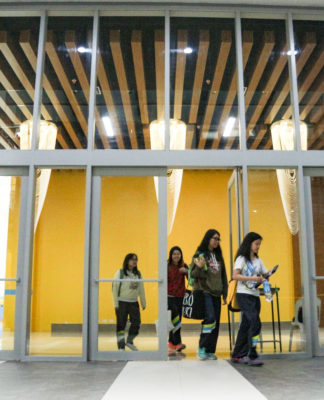SOCIAL media builds a bridge that can unite churches from various parts of the world, a Vatican communications official said.
Msgr. Paul Tighe, secretary of the Pontifical Council for Social Communications and handler of Pope Francis’ twitter account @Pontifex, said the Internet has the potential to close the gap brought by people’s differences.
“The title that was chosen for Pope Francis’ twitter account was “Pontifex.” Pontifex meant the builder of bridges. The Internet is about division. We remember this call to build bridges, the call to build relationships with people,” he said in his keynote address at the Catholic Social Media Summit held at the Colegio de San Juan de Letran from Nov. 23 to 24.
Tighe urged the 400 participants of the summit to continue the new evangelization effort and spread “positive” social communication instead of negativity.
Distractions and abuses may be evident on the Internet, but filling the web with God’s love is more powerful, he added. “It is the grace of God that will reach out to us and will change the human heart. God wants to be with us,” Tighe said.
Reflecting on the theme “The Revolution,” Fr. Chito Dimaranan, moral theology professor and blogger, urged participants to start a social media revolution by promoting and defending the Catholic faith.
“Populate Catholic pages, support creators and curators. Shout, leave, react, and make your Catholic voice heard,” Dimaranan said.
Ethics in social communication
Ahead of the summit, a symposium was held at the UST Martyrs’ Hall last Nov. 22 to mark the 50th anniversary of Inter Mirifica, the decree on social communication promulgated by Pope Paul VI in December 1963 during the Second Vatican Council.
Tighe, who was also a guest speaker in the symposium, said a social communicator should always be mindful of the basic truth of communication. A true social communicator in Christ avoids all forms of anti-social behavior and disrespectful expression, he said.
“If they are to help people to grow in knowledge and in truth, then we must commit ourselves to honesty and authenticity in our contributions,” Tighe said. “In an environment that allows people to be present anonymously, we must be attentive, never to lose our sense of personal responsibility,” he added.
Angela Ureta, former executive producer at ABS-CBN, discussed how media professionals who are exposed to violence each day should also be given pastoral care, echoing the message of Pope John Paul II in his apostolic letter, “The Rapid Development.”
“As a shepherd of the Catholic Church, John Paul II called and dignified media practitioners as real persons who need not be converted or admonished as much as they needed to be loved and to be understood,” Ureta said.
Christian Esguerra, senior reporter of the Philippine Daily Inquirer, said the teachings of Inter Mirifica serve as a tool for journalists to learn the concept of “correct conscience” which takes into account the dignity of a human being.
“Conscience is never enough for you to survive as a journalist. You are not supposed to forget your faith. You are not supposed to disregard your religion,” Esguerra said. With reports from Angeli Mae S. Cantillana













